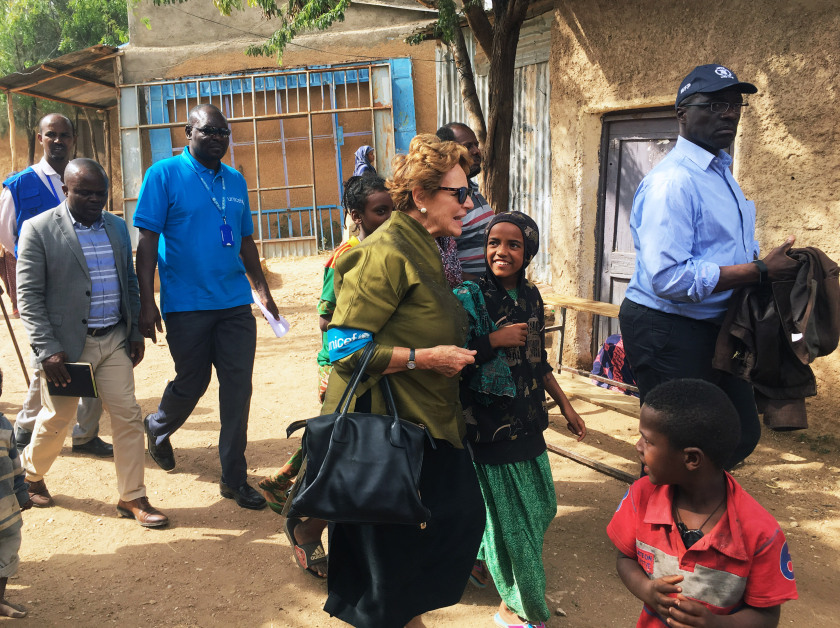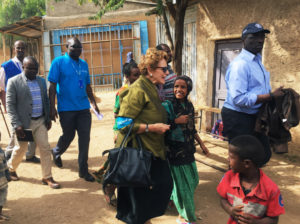ADDIS ABABA – The heads of the United Nations World Food Programme and UNICEF in Ethiopia have made a joint visit to Somali Region of Ethiopia to see firsthand how people affected by recent violence and civil unrest are being assisted.
WFP Country Director, Steven Were Omamo and UNICEF Representative in Ethiopia, Gillian Mellsop visited the regional capital Jijiga on Monday 13 August, where they assessed what further support was needed and emphasized the importance of strong partnerships in improving the situation.
A humanitarian coordination committee comprising both government and humanitarian partners has been established to identify food distribution points in the city, after thousands of people were forced from their homes amid the disturbances.
“The people here are facing enormous challenges, and we have been doing all we can to support them through food distributions over the past few days,” said Omamo. “It is encouraging to see how the situation is stabilizing through the efforts of the Government and the support of humanitarian partners, and federal and regional authorities.”
“Children and women still face enormous challenges in accessing basic services such as water and health,” said Mellsop. “Working with the regional government and our partners, we are doing our best to ensure that support continues to reach them even as we restore currently-suspended programmes for other vulnerable populations.”
UNICEF is providing high-energy biscuits to children and women, buckets, blankets, soap and water-treatment chemicals. Before the conflict, UNICEF was supporting the treatment of approximately 132,000 children and 110,000 pregnant and breastfeeding women for moderate malnutrition and 8,500 children for severe acute malnutrition. The support is expected to resume once the situation improves.
WFP is providing rice, pulses, oil, corn soya blend, and the supplement Plumpy’Sup to 52,000 people seeking shelter in temporary accommodation. It hopes to resume its regular operations in the coming days as the security situation continues to improve.
WFP usually provides food assistance to some 2 million food-insecure people in the Somali Region. Another 311,000 drought-affected people receive complementary WFP food assistance under the government-led Productive Safety Net Programme.
UnicefEthiopia







































